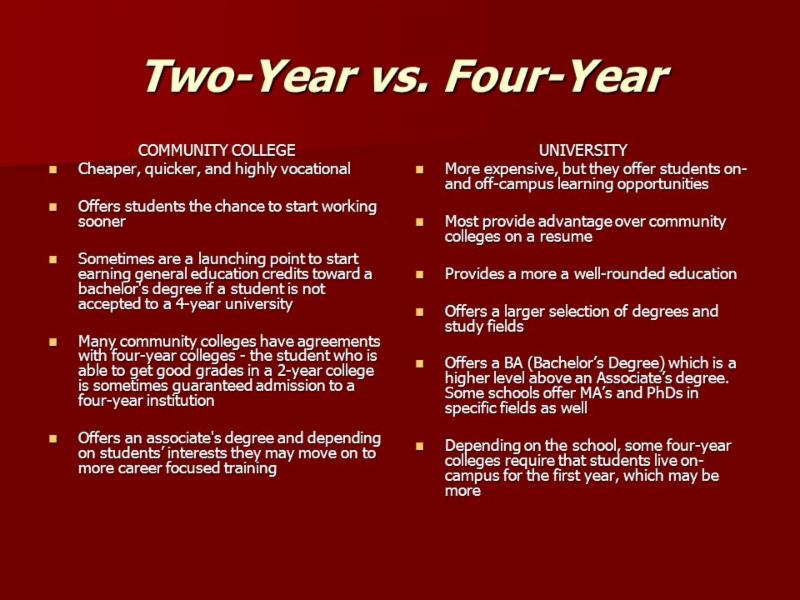Two-Year vs. Four-Year
Higher Education
Whether you are just graduating from high school or looking for a stable career, choosing between a two-year or four-year educational program is a complicated decision. The traditional route has been to get into a four-year university, get a bachelor's degree and reap the benefits of moving forward to receive another level of education (Master's, PhD, etc.) all while increasing your salary in the workforce and increasing earning potential over a lifetime.
Today, while still highly considered and sought after, the traditional route of post-secondary education is becoming less common. The paradigm for preparing for higher education is shifting from many individuals attending four-year colleges or universities to them attending two-year colleges or vocational schools. For many, a four-year institution may be too expensive. For others, two-year schools without dorms or other school spirited activities for the ultimate college experience may be a deal breaker.
Knowing what you want from a college experience gives you a headstart in choosing the best option.
Listed below are a few explanations on why a two-year or a four-year college may be the best path to take, depending on the individual.

One
benefit of
a
four-year university
is that it holds
a perception
of prestige when applying for jobs in many fields. In addition
, four-year schools
offer a variety of courses
allowing students to develop more than one skill set, adding versatility to their resume and potentially more job opportunities.
A
bachelor's degree
may
hold
more weight on the salary scale in many professions and there's more opportunities for growth and increasing pay. While attending a four-year college yields great benefits in the job market, it also gives the full college experience where you can network and join social clubs that can develop relationships benefitting you professionally for life such as: business fraternities, fraternities and sororities in general, student government and business organizations/clubs.